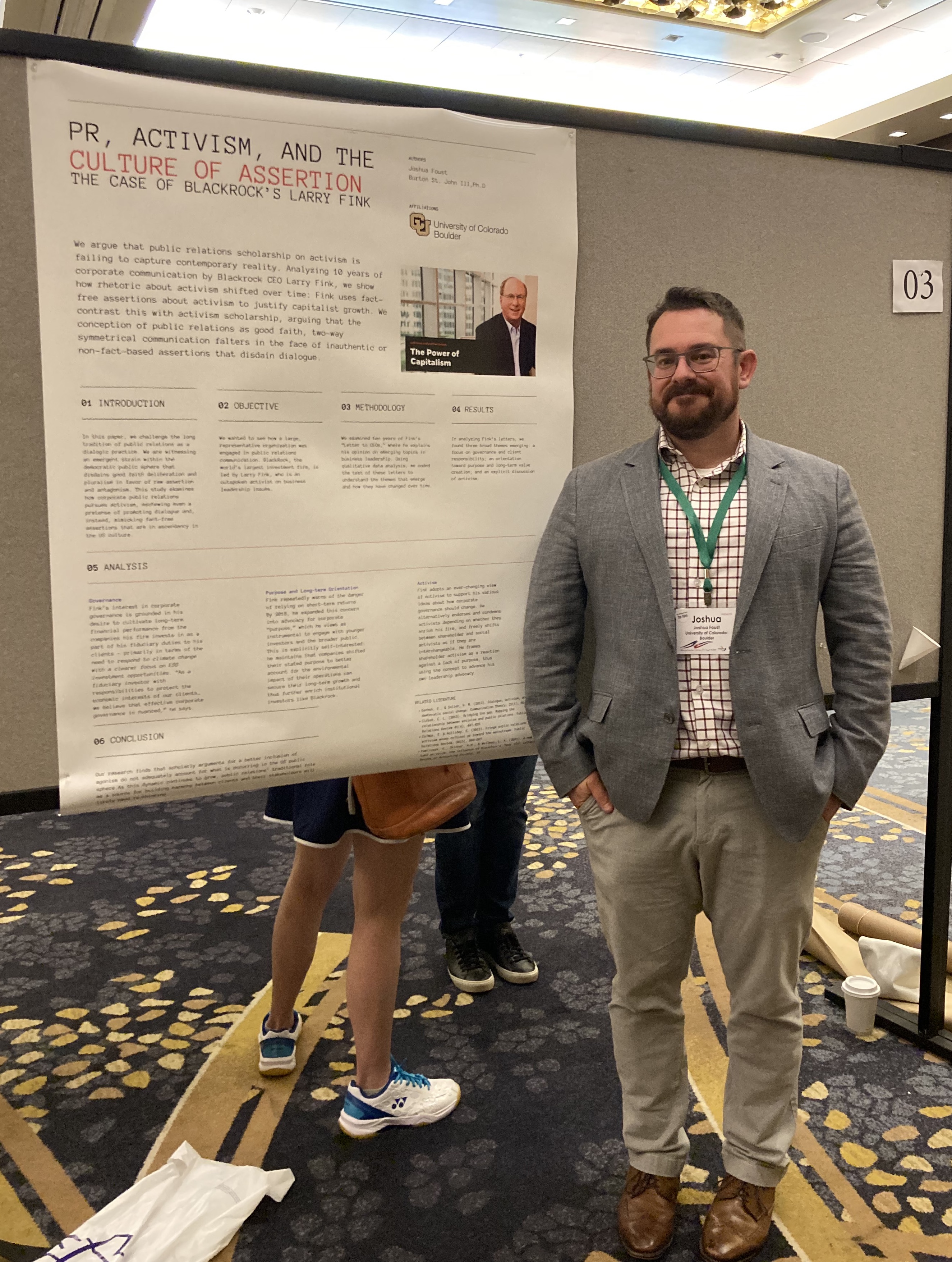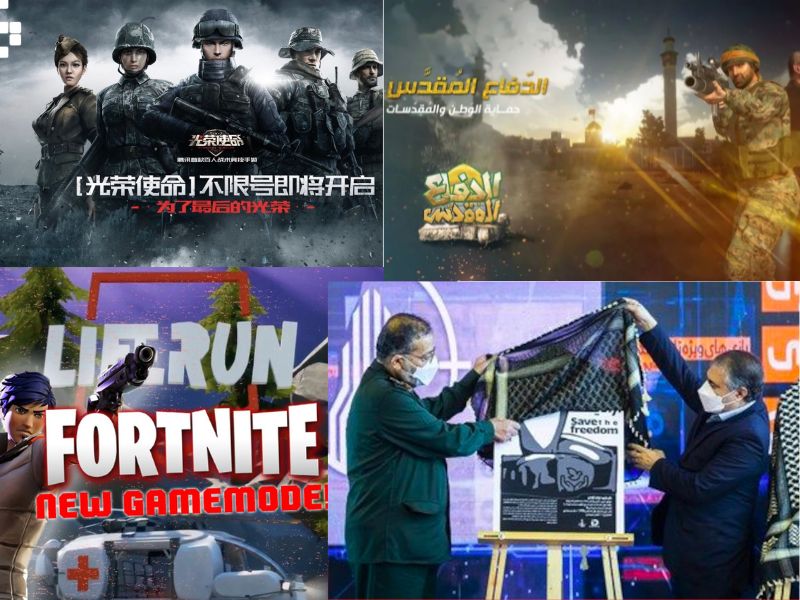Research
 I am a Ph.D. candidate at the Univeristy of Colorado Boulder, where I research strategic communication. My dissertation, “Play, Kill, Recruit: Videogames and Strategic Communication in the US Military” looks at the intersection of immersive media and PR. StratComm is ultimately concerned with understanding how organizations communicate externally, as well as the effects such communication has on the public. My subfield is public relations, where I bring together critical theory and practice research. I also am developing novel theories of the relationship between video games and changing norms in the public sphere, as well as ways to better theorize the role that men and masculinities play in this process. I ground my public relations scholarship in gender theory, public sphere theory, mass communication theories, and affect theory.
I am a Ph.D. candidate at the Univeristy of Colorado Boulder, where I research strategic communication. My dissertation, “Play, Kill, Recruit: Videogames and Strategic Communication in the US Military” looks at the intersection of immersive media and PR. StratComm is ultimately concerned with understanding how organizations communicate externally, as well as the effects such communication has on the public. My subfield is public relations, where I bring together critical theory and practice research. I also am developing novel theories of the relationship between video games and changing norms in the public sphere, as well as ways to better theorize the role that men and masculinities play in this process. I ground my public relations scholarship in gender theory, public sphere theory, mass communication theories, and affect theory.
This is a rather huge topic without a lot of research activity – most gaming scholarship focuses more on the representational choices in the games themselves, or on how people are being affected by those games. There is a parallel field, serious games, that investigates gaming used for purposes beyond entertainment – think advocacy, advanced simulation, didactic story queues, overt political messaging, and so on. What I work on, instead, is somewhere in-between: no one would consider Valorant a “serious” game, yet it is used by several branches of the military for outreach and recruitment.
Consider, for example, this collection of various games either created or modded by governments and non-state actors for persuasion and propaganda.

What can we learn from the way these games are designed and operationalized? It tells us a lot about what heroes and villains look like, sound like, talk like, etc. It tells us how they think through the nature of conflict. And it can tell us that they’re aware of how young people are consuming ideas and beliefs through entertainment so they want a chance at persuading them.
Now imagine what you could learn from studying the US military’s efforts to influence games, in addition to releasing their own. I have a lot of ideas bouncing around my head about this topic, so with any luck the job market gods will smile on me and I’ll get to continue my work as a professor.
Working Papers
I’m unclear on the best way to present works-in-progress on here. Maybe I’ll fill this out soon! Right now I have projects either midway done or out for review about affect theory, masculinity, Bourdieu and industry social practices, public sphere theory, and the PR of NFTs.
Articles
– Foust, J., & St John, B. (2023). Public relations, activism, and the culture of assertion: The case of Blackrock’s Larry Fink and the letter to the CEOs. Public Relations Inquiry, 0(0). https://doi.org/10.1177/2046147X231224830
– Foust, J. (2023). The habitus of misogyny: Bourdieu and the institutionalization of sexist abuse in the video games industry. Media, Culture & Society, 0(0). https://doi.org/10.1177/01634437231219383
– Foust, J., and St. John III, Burton. (2022). Facts Do Care About Your Feelings: The “Assertive Turn” in Emergent Attributes of the Contemporary U.S. Public Sphere. Journal of Communication Inquiry, 0(0). https://doi.org/10.1177/01968599221099646
– Fisher, J., and Foust, J. (2021). #GirlGamers, Soldiers, and Public Relations: A Critical Discourse Analysis of the Use of U.S. Army Esports as a Strategic Communication Tool. Journal of Communication 72(2), p. 165-189. https://doi.org/10.1093/joc/jqab051
(Recent) Policy Papers
– Foust, J. (2022, October 20). Video game censorship is authoritarians’ latest tool to muzzle speech. The Brookings Institution.
– Foust, J. (2022, July 12). Addressing the policy challenges raised by NFT gaming. The Brookings Institution.
– Foust, J. (2022, May 7). NFTs in Video Games Bring Laundered Money and Angry Players: Rushing to further monetize gaming adds to global social and environmental risk. Foreign Policy.
– Foust, J., and Jerome, J. (2021, June 25). A guide to reigning in data-driven video game design. The Brookings Institution.
– Foust, J. (2021, March 25). Video games are the new contested space for public policy. The Brookings Institution.
– Foust, J., and Frankel-Pratt, S. (2021, January 22). Social Media Finally Broke the Public Sphere: Liberal democracies must work to recreate a sense of shared identity online. Foreign Policy.